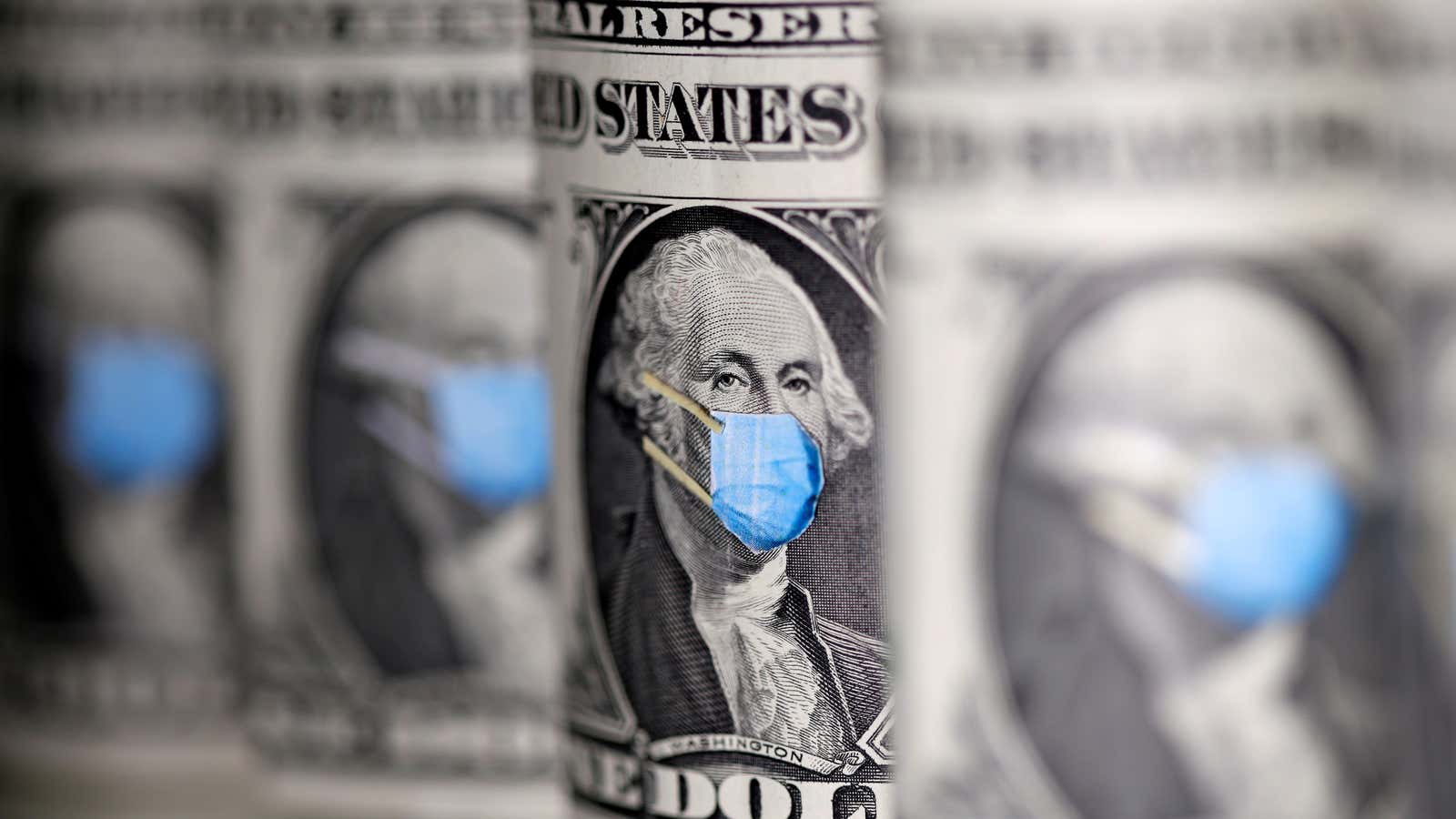As stocks plunge and the US economy hurtles into recession, at least one thing is on the upswing: Cash. Americans are piling it up in their bank accounts and may be squirreling away some notes under the mattress, too.
As coronavirus concerns grow, the amount of physical cash in circulation has risen, jumping 1.8% during the week that ended March 25, increasing to $1.86 trillion in absolute terms. It was the biggest weekly rise since December 1999. As JP Koning noted on the Moneyness blog, that was during the Y2K bug frenzy, when people were worried that computer systems would malfunction when dates rolled over in the new millennium.
There’s been pandemonium in financial markets. Governments shuttered swaths of their economies to contain the pandemic, causing everything from junk bonds to blue chip stocks to plunge. The S&P 500 Index of US stocks is down about 17% this year, after dropping as much as 30% in late March.
Demand account balances—which include things like checking and saving accounts—jumped 16%, the most in nine years, to a record $1.922 trillion in the week that ended March 23, according to Federal Reserve data. It was the biggest weekly increase since Aug. 1, 2011, a few days before the US was stripped of its AAA credit rating by Standard & Poor’s.
“Households likely sold equities and riskier assets and went for cash equivalents,” Sebastien Galy, senior macro strategist at Nordea Asset Management, wrote in an email. While job losses have caused some account balances to drop, the numbers are likely dominated by richer households that have sold investments, he said.
